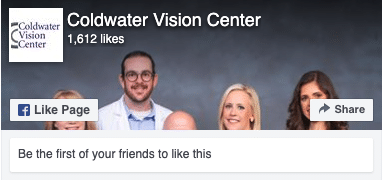Contact Lenses for Children with Aphakia
Would you like to know more about aphakia in children? Here we are going to go over some background, details, and the most frequently asked questions about children with aphakia. This will help you when you discuss the most suitable aphakia treatment for children in Coldwater, MS with your optometrist.
What Is Aphakia?
Aphakia is when you don’t have a lens inside your eye. The lens of your eye is the clear oval-shaped structure that is located behind your iris, which is the colored part of the eye and your pupil. This is what focuses light rays on the retina. So, when your eye doesn’t have a lens, your eye will be out of focus and your vision will be blurry.
What Causes Aphakia?
There are three main causes of aphakia.
- Cataract Surgery – Typically, when a child has cataract surgery, the eye’s natural lens is replaced with an artificial lens or intraocular lens. When a cataract is removed in a child’s eye, they are sometimes left without an IOL after the cloudy lens has been surgically removed.
- 2. Injury – An injury or trauma sometimes causes Aphakia to the eye’s lens.
- Congenital Defect – Sometimes babies are born without lenses in their eyes or are born with detached or abnormal lenses. Fortunately, this is rare, but it does happen. On that same note, sometimes people are genetically predisposed to aphakia.
What Are the Signs of Aphakia?
It’s always best to talk to your optometrist in Coldwater, MS about any eye issues you might be experiencing. But here are the most common signs that you might have aphakia.
- Trouble focusing
- Blurry vision
- Changes in your colored vision
- Colors that appear faded
- Your focus changes as your distance from an object changes
- Nearsightedness or farsightedness
How Do You Treat Aphakia in Children?
There are several treatment options for children with aphakia.
Surgery – With aphakia surgery, an IOL replaces your damaged, missing, or detached lens. However, for newborns, IOL is implanted during a subsequent surgery to help avoid complications.
Contact Lenses – People with aphakia are frequently treated with special contact lenses that help provide clear vision. The contact lenses are worn for a month or more without having to be changed.
Glasses – Aphakia can also be treated with eyeglasses; however, this approach is best suited to those that have aphakia in both eyes.
If you need an optometrist in Coldwater, MS, please Contact Coldwater Vision Center today to schedule an appointment for your child with aphakia.





Leave a Reply
Want to join the discussion?Feel free to contribute!